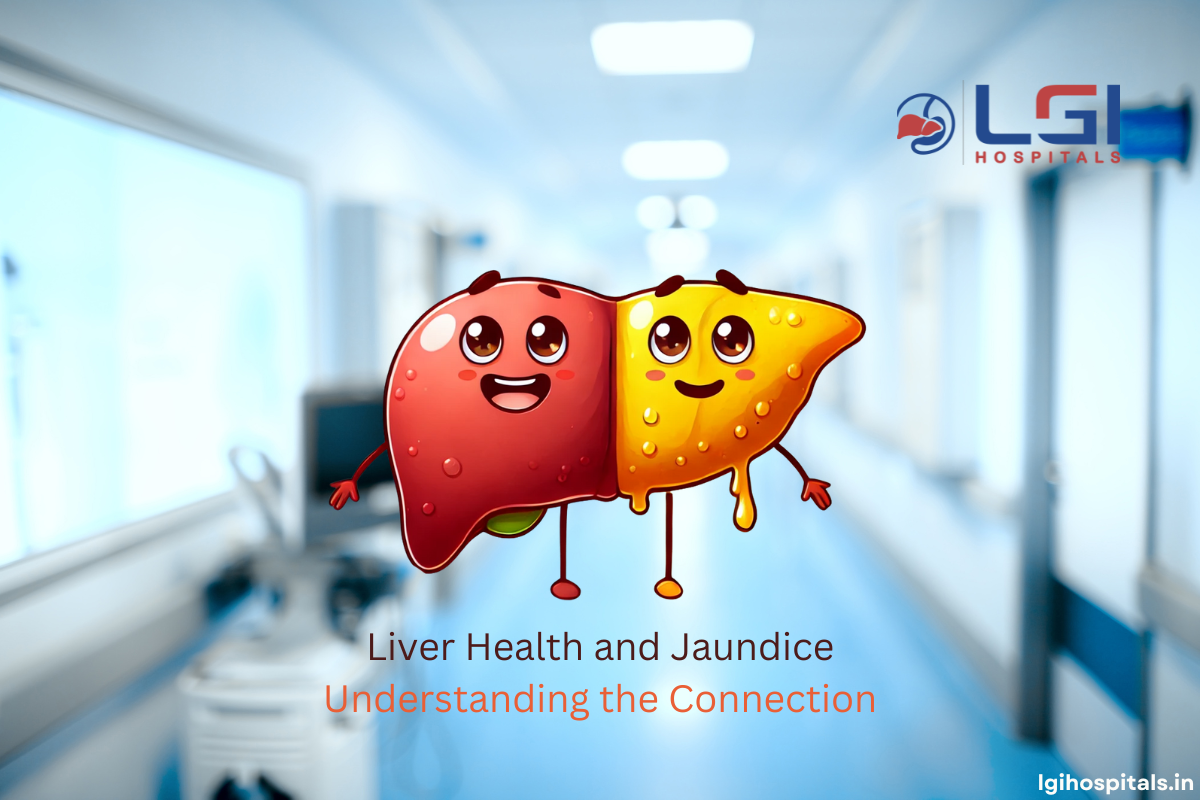Your liver is one of the most vital organs in your body, responsible for digestion, detoxification, and overall health. But when the liver is not functioning properly, it can lead to conditions like jaundice. Have you ever wondered what causes jaundice and how it is linked to liver health? Let’s explore this connection in detail.
What is Jaundice?
Jaundice is a condition where the skin, eyes, and mucous membranes turn yellow due to an excessive buildup of bilirubin in the blood. Bilirubin is a yellow pigment produced when red blood cells break down. Under normal circumstances, the liver processes bilirubin and helps eliminate it from the body. However, when liver function is impaired, bilirubin accumulates, leading to jaundice.
Types of Jaundice
Jaundice can be classified into three types based on its cause:
Pre-hepatic Jaundice – Occurs due to excessive breakdown of red blood cells, leading to increased bilirubin production. Conditions like malaria, sickle cell anemia, and hemolytic disorders can cause this type of jaundice.
Hepatic Jaundice – Results from liver diseases such as hepatitis, cirrhosis, or liver cancer, which affect the liver’s ability to process bilirubin.
Post-hepatic jaundice – This is caused by obstruction in the bile ducts due to gallstones, tumors, or strictures, preventing bilirubin from being excreted.
The Link Between Liver Health and Jaundice
Jaundice is often a symptom of underlying liver problems. Here are some common liver-related conditions that can lead to jaundice:
Liver Infections (Hepatitis A, B, C, etc.) – Viral infections cause inflammation, affecting bilirubin metabolism.
Liver Cirrhosis – Long-term liver damage due to alcohol, fatty liver disease, or infections leads to scarring and jaundice.
Liver Cancer – Tumors in the liver can obstruct bile flow, causing bilirubin buildup.
Blocked Bile Ducts – Gallstones, tumors, or liver diseases can prevent bilirubin from exiting the liver.
Genetic Disorders – Conditions like Gilbert’s syndrome affect bilirubin processing and can cause mild jaundice.
Fatty Liver Disease – Excess fat in the liver due to obesity, diabetes, or poor diet can impair liver function.
Symptoms of Jaundice
Jaundice is usually accompanied by other symptoms, such as:
Yellowing of the skin and eyes
Dark-colored urine
Pale stools
Fatigue and weakness
Abdominal pain
Nausea and vomiting
Unexplained weight loss
Itchy skin
If you or someone you know experiences these symptoms, it is essential to seek medical attention immediately.
How to Maintain a Healthy Liver
Taking care of your liver can help prevent jaundice and other liver-related diseases. Here are some effective tips:
1. Follow a Nutritious Diet
Eat a balanced diet rich in leafy greens, fresh fruits, and whole grains.
Include liver-friendly foods such as turmeric, garlic, walnuts, and beets.
Avoid excessive consumption of fried and processed foods.
2. Stay Hydrated
Drink plenty of water to help flush toxins from the liver.
Herbal teas and fresh fruit juices aid in detoxification.
3. Limit Alcohol Consumption
Excessive alcohol can damage liver cells and cause cirrhosis.
Reduce alcohol intake or avoid it altogether.
4. Exercise Regularly
Engaging in physical activity helps maintain a healthy weight and reduces fat accumulation in the liver.
Activities like walking, yoga, and strength training support liver function.
5. Get Vaccinated
Vaccinations for hepatitis A and B protect against liver infections.
Preventing liver infections reduces the risk of jaundice.
6. Avoid Unnecessary Medications
Overuse of painkillers, antibiotics, and supplements can burden the liver.
Always consult a doctor before taking any medication.
Taking small steps toward liver health can make a significant difference in preventing jaundice and maintaining overall well-being.
When to See a Doctor?
If you notice any signs of jaundice, it is essential to consult a liver specialist. Early diagnosis and treatment can help prevent complications.
How is Jaundice Diagnosed?
Doctors use several tests to diagnose jaundice and its underlying causes:
Blood Tests – Measure bilirubin levels and assess liver function.
Ultrasound or CT Scan – Detects liver abnormalities and bile duct blockages.
Liver Biopsy – Determines the extent of liver damage.
Endoscopic Procedures – Examines bile ducts for obstructions.
Treatment for Jaundice
The treatment of jaundice depends on its underlying cause:
Hepatitis Treatment – Antiviral medications or supportive care for viral hepatitis.
Liver Detoxification – Lifestyle changes and medications to improve liver function.
Gallstone Removal – Surgical or non-surgical procedures to remove bile duct obstructions.
Liver Transplant – Recommended for severe liver failure cases.
Expert Liver Care at LGI Hospital, Nagpur
At LGI Hospital, Nagpur, we offer expert liver care and jaundice treatment. Our team of specialists provides accurate diagnosis and personalized treatment plans.
Meet Dr. Prashant Bhandarkar – Leading Liver Specialist
Dr. Prashant Bhandarkar is one of the most trusted liver specialists, known for treating jaundice and liver diseases effectively. With advanced medical expertise and state-of-the-art facilities, LGI Hospital is your go-to destination for liver health.
Concerned about your liver health? Book a consultation today with Dr. Prashant Bhandarkar at LGI Hospital – the best liver hospital in Nagpur.
Call now or visit our website to schedule an appointment!

